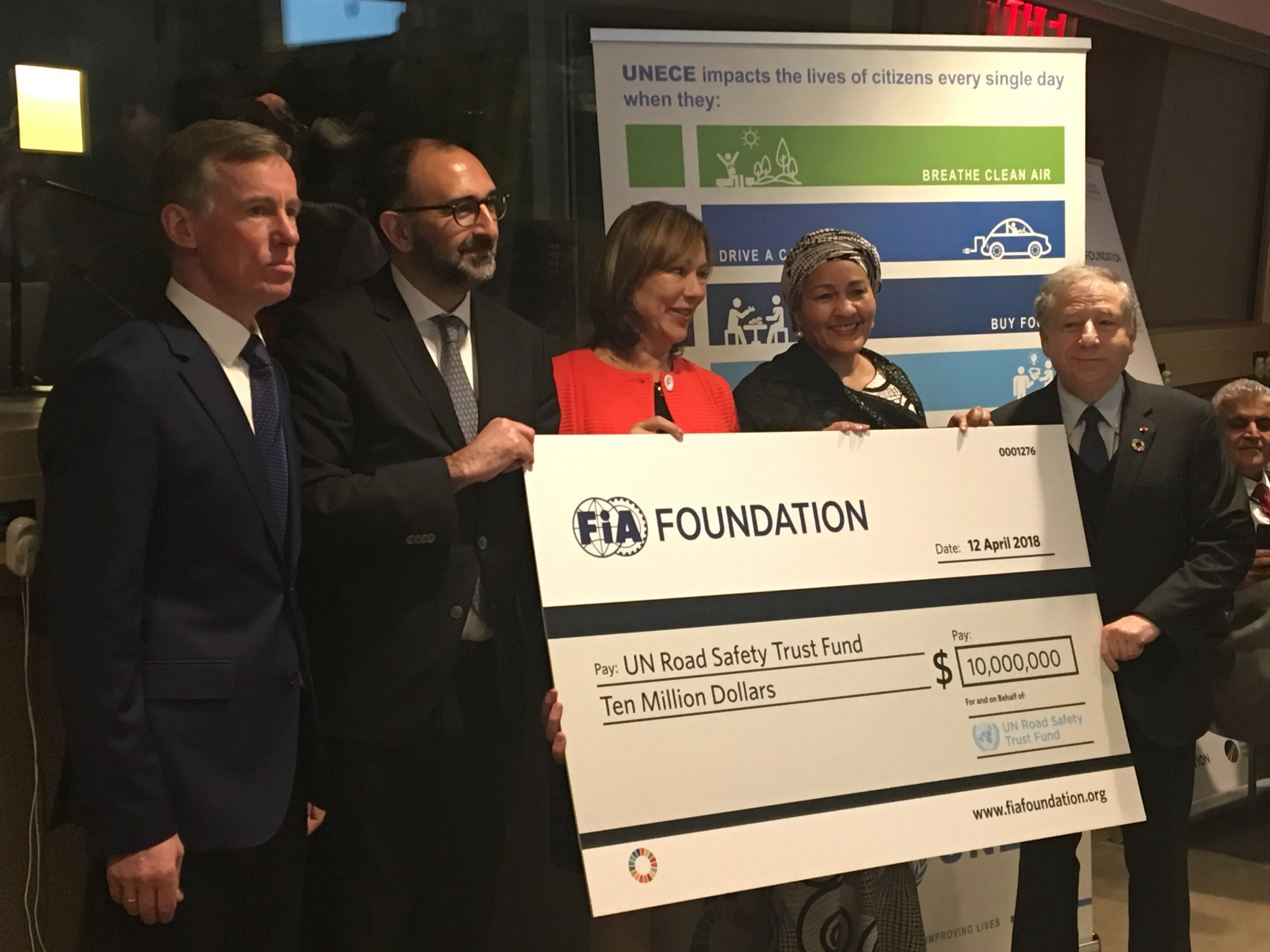The New York United Nations Climate Summit has prioritised four global transport initiatives as part of the eight actions areas that the summit has named as “critical for keeping global temperature increases to less than two degrees Celsius,” and the Urban Electric Mobility Initiative (UEMI) has taken centre stage.
UEMI wants cities with a specific target to ensure that electric vehicles make up 30% of their total urban vehicle population by 2030 at the latest. Joan Clos, UN-Habitat Executive Director us
October 1, 2014
Read time: 2 mins
The New York 3262 United Nations Climate Summit has prioritised four global transport initiatives as part of the eight actions areas that the summit has named as “critical for keeping global temperature increases to less than two degrees Celsius,” and the Urban Electric Mobility Initiative (UEMI) has taken centre stage.
UEMI wants cities with a specific target to ensure that electric vehicles make up 30% of their total urban vehicle population by 2030 at the latest. Joan Clos, UN-Habitat Executive Director used the gathering to call for “mobilisation of the private sector to enable … technological breakthroughs in urban mobility.”
Rob Wallis, chief executive of the UK’s777 TRL (Transport Research Laboratory) has welcomed the initiative saying “the UEMI initiative aligns strongly with TRL’s own strategy and current activities. TRL is actively engaged in leading innovative research programmes to understand the implications and opportunities presented by new low-carbon technologies, and is today working on a number of Europe-wide projects seeking the widespread introduction of electrified bus systems across Europe, together with emerging wireless charging solutions for electric vehicles, and a number of similar electric vehicle projects in its home market of the UK.”
The UN summit was held “to motivate action and bring focus to the lead-up to the post Kyoto international climate agreement to be forged under the United Nations Framework Convention on Climate Change (UNFCCC). A key output was the commitment from national leaders to finalise a meaningful, universal new agreement at COP-21, in Paris in 2015, and to arrive at the first draft of such an agreement at COP-20 in Lima, in December 2014.” And, according to the International Atomic Energy Agency (IAEA), “a shift to sustainable, low-carbon transport by 2050 could save governments, companies and individuals up to $70 trillion. Transport currently contributes around one quarter of energy-related global greenhouse gas emission and one fifth of energy use.”
UEMI wants cities with a specific target to ensure that electric vehicles make up 30% of their total urban vehicle population by 2030 at the latest. Joan Clos, UN-Habitat Executive Director used the gathering to call for “mobilisation of the private sector to enable … technological breakthroughs in urban mobility.”
Rob Wallis, chief executive of the UK’s
The UN summit was held “to motivate action and bring focus to the lead-up to the post Kyoto international climate agreement to be forged under the United Nations Framework Convention on Climate Change (UNFCCC). A key output was the commitment from national leaders to finalise a meaningful, universal new agreement at COP-21, in Paris in 2015, and to arrive at the first draft of such an agreement at COP-20 in Lima, in December 2014.” And, according to the International Atomic Energy Agency (IAEA), “a shift to sustainable, low-carbon transport by 2050 could save governments, companies and individuals up to $70 trillion. Transport currently contributes around one quarter of energy-related global greenhouse gas emission and one fifth of energy use.”







